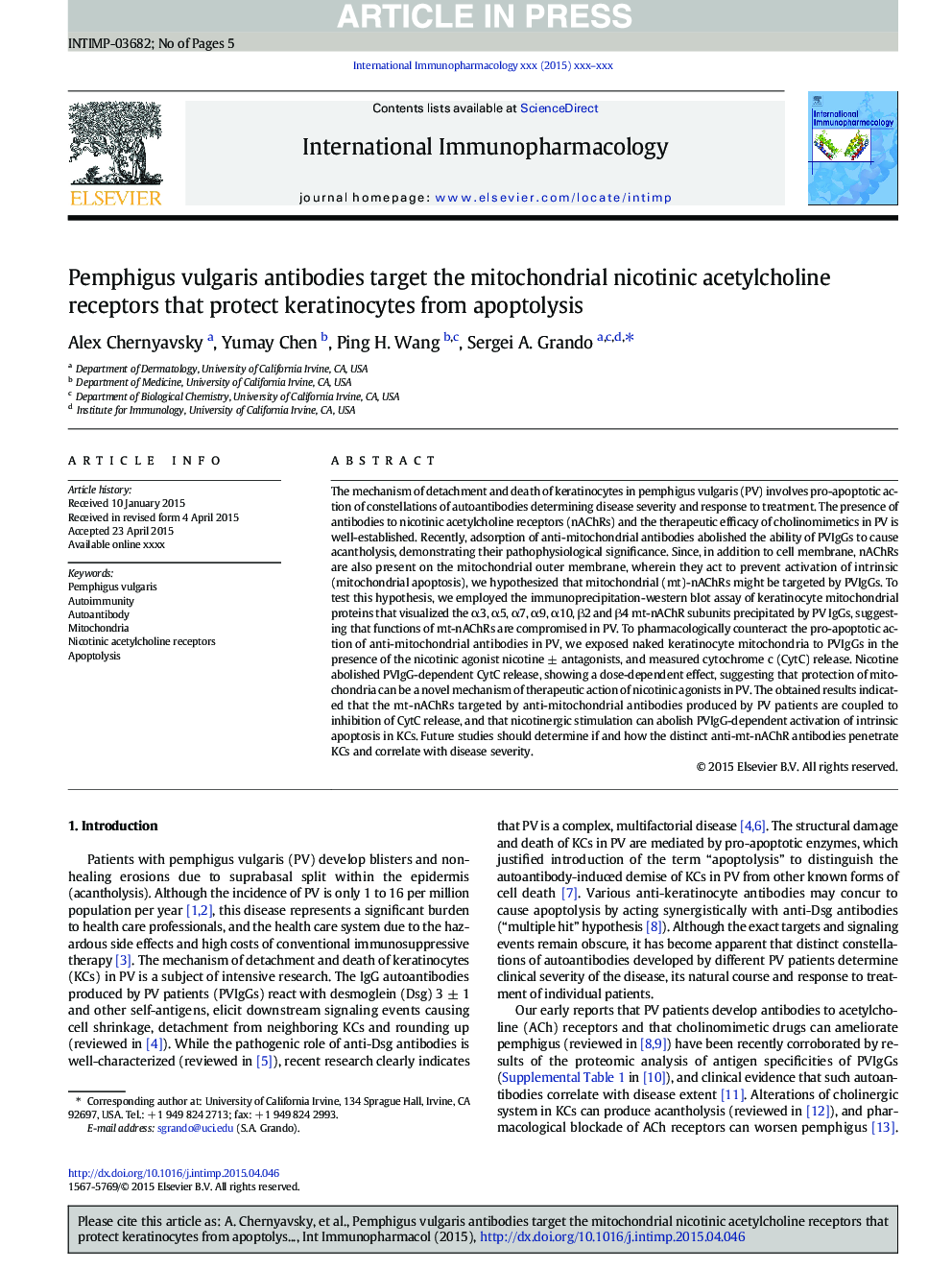| Article ID | Journal | Published Year | Pages | File Type |
|---|---|---|---|---|
| 5832057 | International Immunopharmacology | 2015 | 5 Pages |
Abstract
The mechanism of detachment and death of keratinocytes in pemphigus vulgaris (PV) involves pro-apoptotic action of constellations of autoantibodies determining disease severity and response to treatment. The presence of antibodies to nicotinic acetylcholine receptors (nAChRs) and the therapeutic efficacy of cholinomimetics in PV is well-established. Recently, adsorption of anti-mitochondrial antibodies abolished the ability of PVIgGs to cause acantholysis, demonstrating their pathophysiological significance. Since, in addition to cell membrane, nAChRs are also present on the mitochondrial outer membrane, wherein they act to prevent activation of intrinsic (mitochondrial apoptosis), we hypothesized that mitochondrial (mt)-nAChRs might be targeted by PVIgGs. To test this hypothesis, we employed the immunoprecipitation-western blot assay of keratinocyte mitochondrial proteins that visualized the α3, α5, α7, α9, α10, β2 and β4 mt-nAChR subunits precipitated by PV IgGs, suggesting that functions of mt-nAChRs are compromised in PV. To pharmacologically counteract the pro-apoptotic action of anti-mitochondrial antibodies in PV, we exposed naked keratinocyte mitochondria to PVIgGs in the presence of the nicotinic agonist nicotine ± antagonists, and measured cytochrome c (CytC) release. Nicotine abolished PVIgG-dependent CytC release, showing a dose-dependent effect, suggesting that protection of mitochondria can be a novel mechanism of therapeutic action of nicotinic agonists in PV. The obtained results indicated that the mt-nAChRs targeted by anti-mitochondrial antibodies produced by PV patients are coupled to inhibition of CytC release, and that nicotinergic stimulation can abolish PVIgG-dependent activation of intrinsic apoptosis in KCs. Future studies should determine if and how the distinct anti-mt-nAChR antibodies penetrate KCs and correlate with disease severity.
Related Topics
Life Sciences
Immunology and Microbiology
Immunology
Authors
Alex Chernyavsky, Yumay Chen, Ping H. Wang, Sergei A. Grando,
